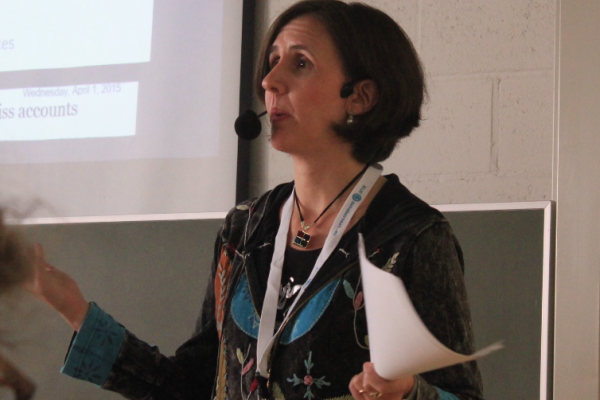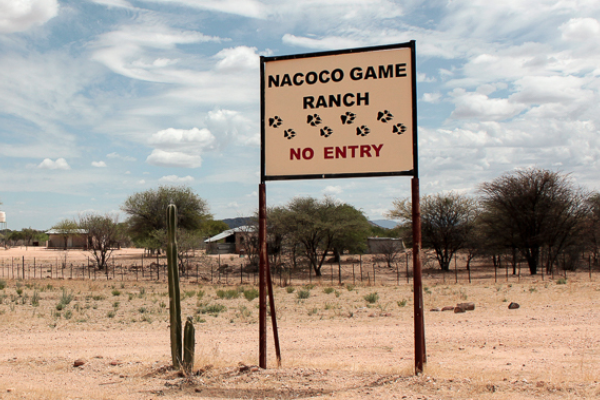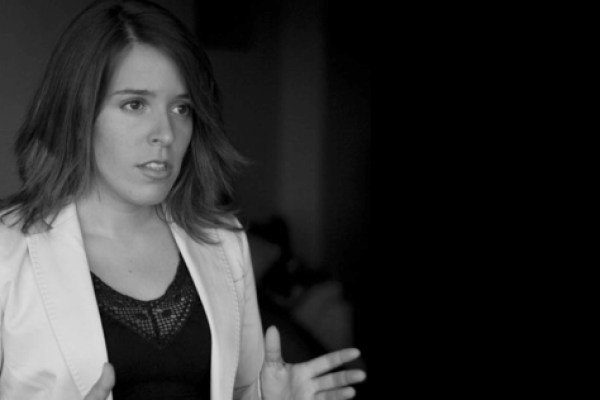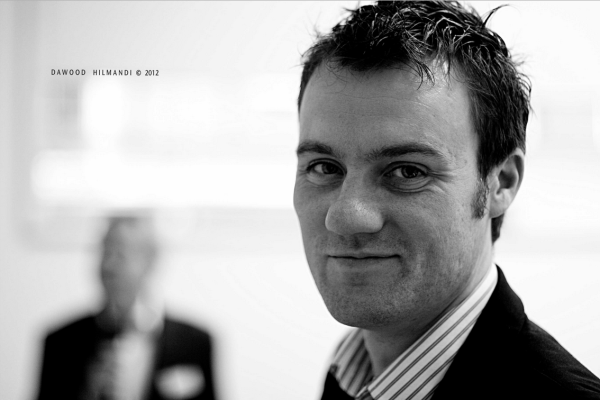How does an award-winning journalist become deputy director of the ICIJ?
“I’m from Argentina and I moved to the US to get my master’s degree in journalism. When I first applied for an internship at ICIJ after my studies, they rejected me for the position because I was overqualified – I had already worked as a journalist in Argentina. Then one of my professors intervened and I got the opportunity. I couldn’t believe that there was an organization where you could do investigative reporting all day and focus on international issues; it seemed like a dream job. I started in 2005 as an intern, then became a reporter, and when David Kaplan became director in 2008, I became deputy director.”
The focus of ICIJ has always been cross-border journalism, but would you say that its focus lies there now more than ever?
“From the beginning ICIJ was created to foster exchange between journalists, cross-border investigations and collaborations, and over the years we have perfected that methodology. In 1997, when ICIJ was founded, the technology wasn’t as advanced as it is today. Collaboration was more of a concept; nobody was doing global investigations like today. I think we’ve come a long way, and we continue to learn as we go. What kinds of stories motivate large, diverse groups of journalists? How do you keep the balance between management and decentralization? How much freedom do you want to give your partners to operate in their own countries?”
What investigation are you most proud of?
“The recent projects that we have done on financial secrecy have been based on large amounts of confidential data that ICIJ received and were a huge challenge. They forced us to rethink how we’re working, to take risks, and to be more collaborative and inclusive than we had ever been. The stories on tax havens gave us the opportunity to up our game, get out of our comfort zone and decentralize. Before, we were working with small groups of maybe ten journalists at the time, but now we worked with 80 journalists on LuxLeaks, 100 journalists on Offshore Leaks and 160 journalists on SwissLeaks. I’m proud because we took the risk and it was successful.”
“These projects helped put ICIJ on the map and the impact of the stories has been global, on a scale that we had never seen before. Ultimately all investigative journalists want impact. Because of cross-border collaboration, these projects also had a great impact on our partners’ work and in their countries.”
The more leaks for you to work with, the better?
“People ask us now if we are only going to do leaks from now on – absolutely not. One leak came, we did it well, another one came and we did it well again and they kept coming. If they are relevant and in the public interest, we won’t reject them. Having said that, I’m also proud of the more traditional work we do without leaks. In our recent investigation into the World Bank, for instance, we were able to marry in-depth data analysis from public sources with great field reporting in Africa and other places. There is room for both kinds of reporting.”
A collaboration can be wonderful but also nightmarish, you said in your keynote speech for the Dataharvest Conference. Would you elaborate on that?
“Anyone who thinks collaboration is a matter of exchanging a few emails, has no idea what he or she is getting into. If you don’t pick your partners right, for example, you have some headaches guaranteed. When you invite someone to collaborate, you have to look at the whole person and not only at their journalistic skills. It’s like hiring someone for your newsroom. You want them to be self-aware and able to communicate with people. Not everybody has to have the same personality or has to be outgoing or ‘huggish’; you can have people that are more shy, but you can’t have people who are egotistical. Some people are not cut out to collaborate.”
Have projects gone wrong because the wrong people were chosen?
“No, but we did face situations in which a project too longer than it should have because things weren’t clear from the beginning or because of disagreements within the team. I’m the first one to admit I’ve made mistakes in the past when I chose partners.”
“So now, when I put together teams, I think carefully. You have to consider their personalities. Nobody is getting paid a lot of money for what we’re doing. We’re doing it because we care. We work very hard to make these collaborations happen. It’s a very noble mission. In the process of accomplishing our noble mission, let’s have a good time. Honestly, life is too short!”
How much reporting are you still able to do as a deputy director?
“It’s more limited because of my duties as a manager, but I believe that the only way you can lead is by doing yourself. I don’t want to be a bureaucrat. I’m a journalist first. In every project, I try to do part of the research, the reporting and sometimes even the writing. I try to be very knowledgeable about the material that we have. Basically, I see myself as a very hands-on manager. I hope I can authoritatively talk about the work and give direction. A big part of my job is making sure people share. You do it by example, but also by motivating the team, I’m also the one to keep an eye on the bigger picture, when the journalists are going very deep in the information.”
What is your advice for journalists who want to do more investigative reporting or who are just starting out?
“Find a mentor. Inside or outside the newsroom. An investigative journalist who cares and can teach you and give you a small part in an investigation. Even if you start with fact checking, it doesn’t matter. It gives you practice and gives you networking opportunities with the people doing the investigations. Maybe next time, you can do research and the next time reporting. Don’t be shy and seek opportunities. Go to conferences like Dataharvest or the Global Investigative Journalism Conference, where you can meet people from all over the world, propose ideas and learn from others. There are also places like Journalismfund.eu that offer grants, so you don’t have to be employed at a big media organization to do investigative journalism.”
“For one of my early investigations and the first one I did in the US, I had a small grant from my university. I had a good topic and was able to execute it. I travelled to Peru, connected with local journalists, took a class in investigative journalism and did all the things that I knew would help me. When I had to propose my thesis, I instead proposed to do a cross-border journalistic investigation. I did not want to do another paper that would collect dust on a shelf.”
“Don’t believe that to be an investigative journalist you have to be an award-winning, incredibly smart person. I think anybody can be an investigative journalist if you are thorough, determined, detail oriented, and if you have a sense of outrage for injustice and abuse. It’s not an impossible thing only reserved for the enlightened and privileged.”
One last question. Your maiden name is Guevara. Any relation to Che?
“The Guevaras came to South America in two major branches. He belongs to one branch and I belong to the other. So at some point, our families probably will be related, but it’s not like we’re first cousins. Although my aunts would all deny the relation because they do not like Che Guevara. They would say: ‘We have nothing to do with that gentleman!’" (laughs)
By Ann-Marie Cordia
Photos © Rafael Njotea and Sofie Dufour
Find all post-conference wrap-ups, presentations etc. here.



